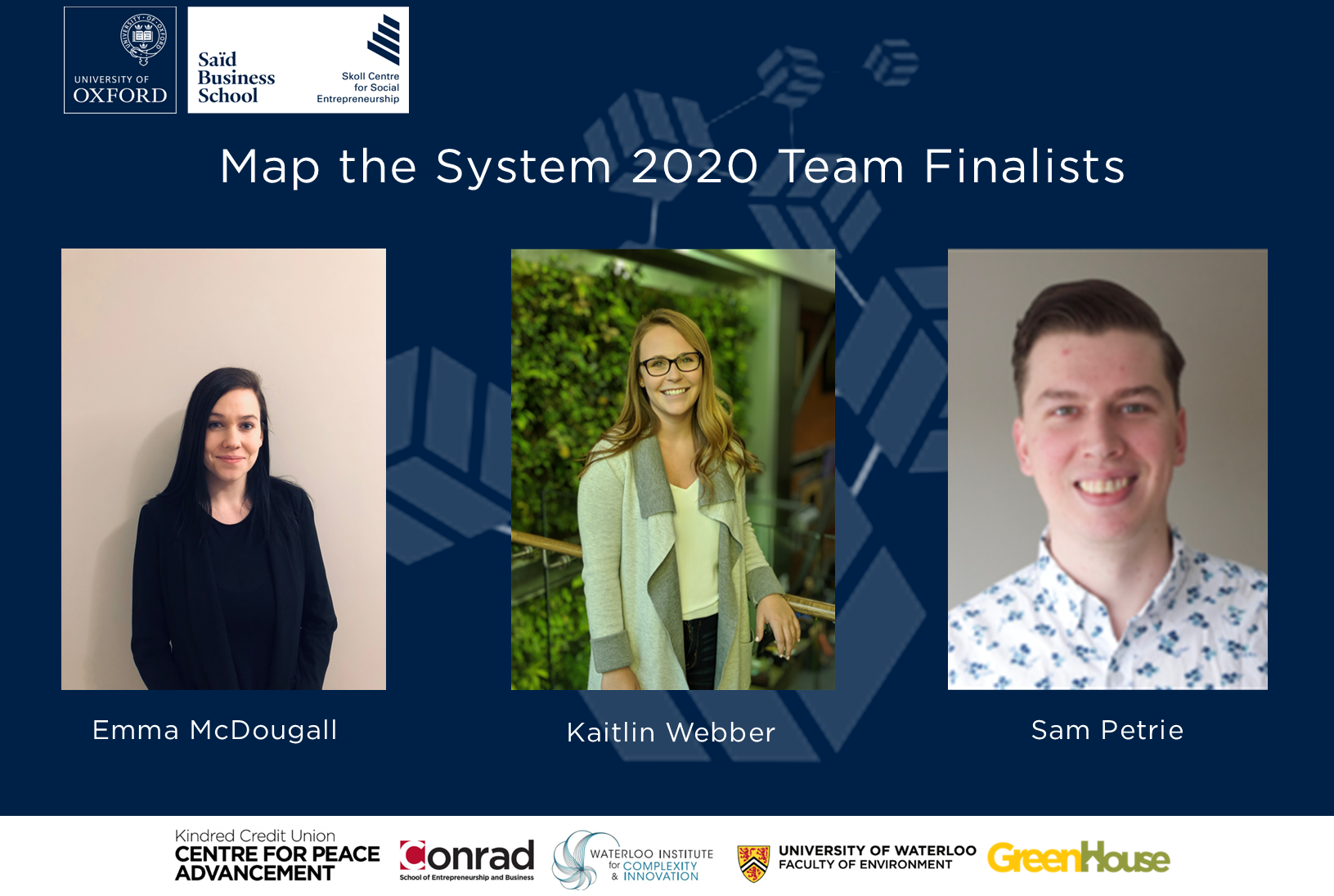Yesterday marked the end of the 2019-2020 Map the System journey! As the Global Finals concluded with virtual cheers and applause from hundreds of audience members, the work of 3,500 teams from 52 institutions over the last few months was celebrated. This year’s Map the System competition was the biggest yet, bringing forth a new caliber of systems thinking. With world problems increasing and getting more complex before our eyes, systems thinking is more relevant than ever.
The three-day Global Finals consisted of 31 team presentations, workshops, Q&A’s with the judges, and a final round of presentations from 6 teams that competed for the top spot. The problems explored this week ranged both in topic and geography, with teams from 6 continents presenting problems that exist throughout the world. From fake news, to food waste, to affordable housing, to menstruation inequality, the judges witnessed passionate students take on the problems that matter to them in order to bring about a systemic change. The winning teams, University of Oxford in 1st place, University of Illinois in 2nd, and University of North Carolina – Chapel Hill in 3rd, all presented projects that, according to the judges, were notably, “an expression of both heart and head.” The passion and real-world application for the systems-change research was evident in each presentation. While the University of Waterloo team did not advance past the preliminary rounds in the Global Finals, the same observation clearly applies to their research on transit-induced gentrification in the Kitchener-Waterloo Light Rail Train (LRT) Corridor.

While the official competition is completed, the team’s research and systems mapping holds incredible value for, as highlighted by the Waterloo Region Record and CBC Radio, conversations that are currently happening about the impact of the LRT in Waterloo Region, and the next stage of LRT development. Webber, Petrie, and McDougall are looking forward to continuing their focus on transit-induced gentrification, and have the chance to apply for additional funding from McConnell’s RECODE program and the Trico Charitable Foundation. In terms of the impact the competition had on their passion for counteracting gentrification, the team stated, “the opportunity to share our findings and learn about research being conducted elsewhere has motivated us to continue on our journey towards improving affordability in Kitchener-Waterloo.”
